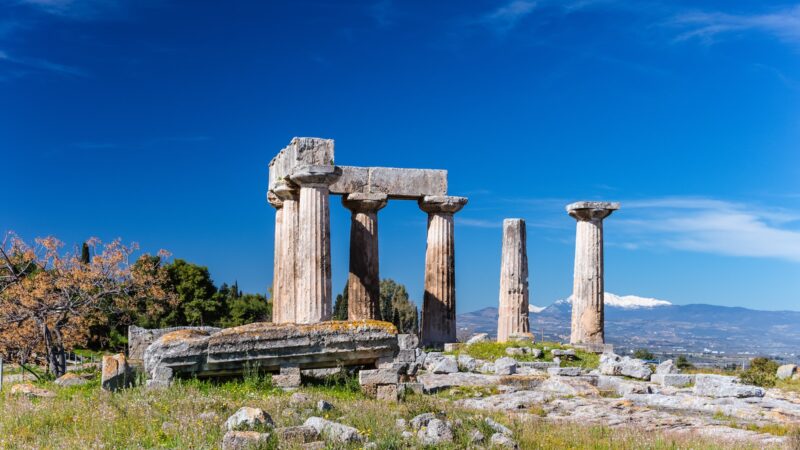The Australian Labor Party’s victory in Australia marks the end of almost a decade of Liberal Party rule. Indeed, the Liberal Party bears many similarities and its philosophy and ideology derived from the Conservative Party in their mother country. Having just scraped a majority in 2019, Scott Morrison has led the Liberal Party to its worst defeat since 1944. This claim however isn’t based on losing government but more critically losing its affluent seats like Goldstein, Higgins, North Sydney, Mackeller and former Prime Minister Tony Abbott’s seat of Warringah failing to be won by the Liberals again. But with the shock victory of independent Dr Monique Ryan in Kooyong suggests a worrying foreshadowing of what is yet to come in Britain.
Poor Leadership, Good Results
Firstly, the presumptive narrative that ‘Keir Starmer is an awful leader, so we’ll get back in’ is to be questioned due to the Australian election. Net satisfaction with Labor leader Anthony Albanese’s performance fell to a record low of minus 14 per cent – the worst for an opposition leader since Bill Shorten – just in mid-April. Starmer too shares an abysmal rating with 53 per cent of respondents to a YouGov poll in April judging him to be ‘doing badly’ as Labour leader in Britain. Nevertheless, with a shared cost of living crisis due to high inflation and rampant house price increases, both conservative parties have failed on their perceived core mission of safeguarding the economy.
The Wavering Middle-Classes
May’s local election results in the UK display signs of dissatisfaction with the current Tory government. The Liberal Democrats (not to be confused with the Australian Liberal Party) exploited the dissatisfaction among middle-class Tory voters in historically safe Tory areas. Australian Labor too exploited this dissatisfaction with middle-class Liberal voters. Being dubbed the ‘teal independents’, predominantly female, middle-class, wealthy, small-l liberal and climate-conscious candidates swept through solid Liberal seats. Teal itself being a mixture of green and blue (the Liberal Party’s colour) displays similarities with NIMBY-minded candidates in solid Tory wards during the UK May election. England’s results saw a net increase of 194 councillors for the Lib Dems and 63 for the Green Party with Labour seeing an increase of only 22 councillors at the expense of a loss of over 336 councillors for the Tories.
Forget the ‘Red Wall’ concept in Britain and in Australia, the Tory Party and the Liberal Party are seeing their core base desert them before their very eyes.
Repercussions for Australia and Dangers for Britain
Republicanism is strong in Australia and the return of the Labor Party with outspoken republican Albanese at the helm, coupled with the culture war heating up over trans rights during the election, this presents danger to the future of the monarchy in Australia once again. For Britain, the story is already well understood since Blair that a Labour government (no matter how appealing to traditional middle-class Conservative voters) will irrevocably vandalise the British constitution once more.
One key lesson learned from this election is that it is a massive challenge to hold onto the prosperous middle classes (which are a core rightist constituency) without compromising on conservative social values. Values of ambition and enterprise have been consistently championed by each Tory government since around the 1860s, yet this current Tory government is the first to not encourage – or even boldly talk – about these values. To fight the culture war without a sound handling of the economy risks losing both to left wing manipulation and thus conservatives are once again in opposition dominated by a left-wing hegemony in economy and culture.
The implication of defending traditional values by the Liberal Party and – supposedly – by the Tory Party without the confidence of the middle-classes on the economy is to pave the way for a leftist victory. Due to the shared Anglo traditions of parliamentary sovereignty, this leaves Australia’s institutions open to vandalism and destruction.
Conclusion
With the end of almost a decade of Liberal rule in Australia marks the beginning of a new era of Labor government. The recriminations inside the Liberal-National Coalition will begin as the moderates seek to flex their dwindling muscle to make the case that the 2022 electoral strategy of chasing ‘Red Wall’ voters cost them their heartlands. Right wing Liberals who protested Scott Morrison’s party by voting for the United Australia Party or Pauline Hanson’s One Nation may return home, but this election has marked the end of solid conservative dominance in Australia.
The Conservative Party in Britain should be worrying. The long-held belief that the Tories will stay in government due to Labour being unable to produce a competent-enough leader has been proven wrong. Ineptitude in optics over Partygate and 40-year high inflation (the highest among G7 countries, currently) is cutting away the Tory Party’s electoral backbone. Forget the insipid ping-pong of which party leaders held illegal gatherings during lockdown and focus on the disastrous state of the economy. If the awful May local election results weren’t a warning of what is yet to come for the Tories, this Australian election result should scare the Tories to death beyond the years of Brexit.



